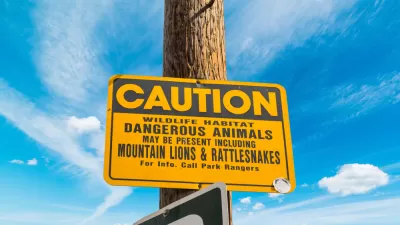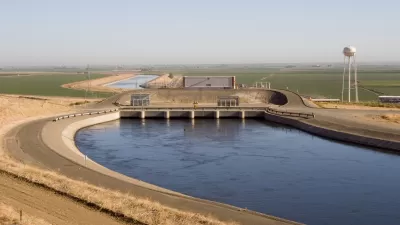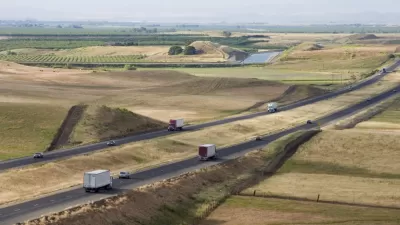A bill set to pass in the U.S. Senate would inject billions into wildlife conservation and species restoration efforts.

A proposed bill could be “the biggest piece of legislation for wildlife since the Endangered Species Act of 1973,” writes Benji Jones in Vox. The Recovering America’s Wildlife Act (RAWA) “passed the House in June on a bipartisan vote, and it’s poised to clear the Senate, where it has 16 Republican co-sponsors, as soon as this fall.”
According to Jones, “Roughly 80 percent of funding for state-led conservation comes from selling hunting and fishing licenses, in addition to federal excise taxes on related gear, such as guns and ammo. But these activities aren’t as popular as they once were.” The new injection of funds could help state agencies beef up their efforts. “The idea is that these funds would pay for 75 percent of each state’s Wildlife Action Plan. These are formal blueprints, drafted by each state in 2005, that detail which species are vulnerable and how the agency plans to keep them off the federal endangered species list.” But, Jones notes, states currently only have the funds for about 5 percent of their plans’ projects.
Unlike many current state initiatives, the bill also covers non-game species, which are often left out by state policies that focus resources on economically valuable species. Jones adds, “RAWA also includes nearly $100 million for the nation’s Native American tribes, which own or help manage nearly 140 million acres of land in the US (equal to about 7 percent of the continental US).”
Observers expect the bill to pass when it comes to a vote as early as September.
FULL STORY: The biggest wildlife bill since the Endangered Species Act is *this close* to becoming law

Planetizen Federal Action Tracker
A weekly monitor of how Trump’s orders and actions are impacting planners and planning in America.

Chicago’s Ghost Rails
Just beneath the surface of the modern city lie the remnants of its expansive early 20th-century streetcar system.

San Antonio and Austin are Fusing Into one Massive Megaregion
The region spanning the two central Texas cities is growing fast, posing challenges for local infrastructure and water supplies.

Since Zion's Shuttles Went Electric “The Smog is Gone”
Visitors to Zion National Park can enjoy the canyon via the nation’s first fully electric park shuttle system.

Trump Distributing DOT Safety Funds at 1/10 Rate of Biden
Funds for Safe Streets and other transportation safety and equity programs are being held up by administrative reviews and conflicts with the Trump administration’s priorities.

German Cities Subsidize Taxis for Women Amid Wave of Violence
Free or low-cost taxi rides can help women navigate cities more safely, but critics say the programs don't address the root causes of violence against women.
Urban Design for Planners 1: Software Tools
This six-course series explores essential urban design concepts using open source software and equips planners with the tools they need to participate fully in the urban design process.
Planning for Universal Design
Learn the tools for implementing Universal Design in planning regulations.
planning NEXT
Appalachian Highlands Housing Partners
Mpact (founded as Rail~Volution)
City of Camden Redevelopment Agency
City of Astoria
City of Portland
City of Laramie





























